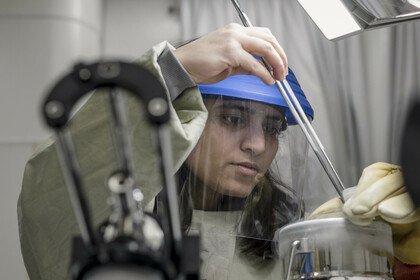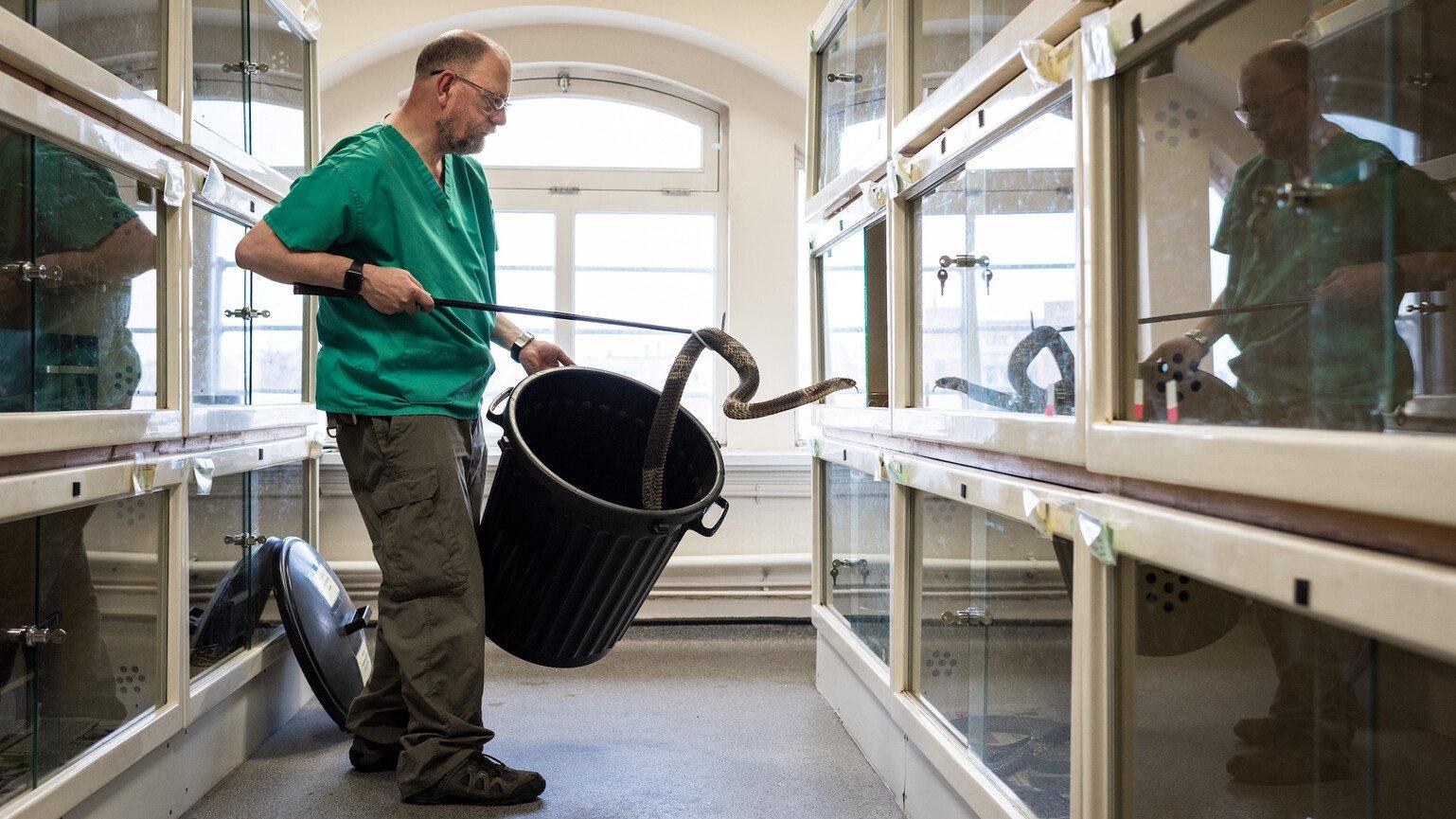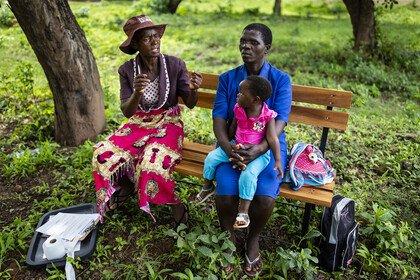
Why we’re endorsing the Kigali Declaration to tackle Neglected Tropical Diseases
Wellcome is formally endorsing the Kigali Declaration at the Malaria and Neglected Tropical Diseases (NTDs) Summit, hosted by the Government of Rwanda on 23 June 2022.

Senior Herpetologist Paul Rowley returns a snouted cobra (Naja annulifera) to its tank at the Liverpool School of Tropical Medicine's herpetarium. Rowley's position sees him handling and extracting venom from the UK's most diverse collection of venomous snakes. The research facility is UK Home Office accredited and inspected.
Photograph by Benjamin Gilbert / Wellcome Trust / Liverpool School of Tropical Medicine
Snakebite remains one of the world's biggest hidden health crises. More than 120,000 people die from snakebite each year, with another 400,000 people left with life-changing disabilities, mostly in the poorest communities.
The Kigali Declaration – a high-level political declaration – aims to mobilise and secure commitments for action against Neglected Tropical Diseases by 2030, including snakebite.
Snakebite was reinstated as one of the 20 Neglected Tropical Diseases listed by the World Health Organization (WHO) in 2017. Since then, global action to address this health crisis has grown, with the WHO strategy for prevention and control of snakebite published in 2019 with Wellcome contribution.
In 2019, Wellcome announced an £80 million programme to transform snakebite treatments by making them more effective, safe and accessible. Our ambitious programme aims to improve currently available treatments, research new approaches and remove the roadblocks to affordability so that snakebite treatments are available to all who need them.
What is the Kigali Declaration?
The Kigali Declaration aims to galvanise global commitments to end NTDs by 2030 by delivering the targets set out in the World Health Organization’s Neglected Tropical Disease Roadmap (2021-2030). Jeremy Farrar, Director of Wellcome, and Nicholas Cammack, Head of Snakebite, are Wellcome signatories to the declaration along with Heads of State, Ministers of Health, and other partners such as the Bill & Melinda Gates Foundation.
Each signatory is endorsing the declaration itself, which includes shared goals and commitments. Alongside this, signatories must pledge their own specific set of commitments which for Wellcome’s endorsement, focus on our work in the area of snakebite. All commitments will be made publicly available following the summit to ensure accountability.
Signatories represent global, national, regional and community leaders across sectors, including those from endemic countries, non-governmental organisations and pharmaceutical or research institutions - meaning that crucial collaboration is central to the declaration.
“The Kigali Declaration is a once in a decade opportunity to draw attention to snakebite as one of the 20 Neglected Tropical Diseases listed by WHO, and I am delighted that we are highlighting our ambitious and exciting Snakebite programme at this important event.”
Why is it important?
Wellcome’s Kigali Declaration commitments form part of our snakebite programme, describing our overarching financial commitment of £80 million by 2026.
In line with the WHO goal to reduce morbidity and mortality resulting from snakebite envenoming, by 2026 the snakebite programme aims to:
- Bring production of snakebite treatments into the 21st century: We will support the modernisation of antivenom production by enhancing the science and applying technology to make products safer, cheaper, and more effective.
- Develop the next generation of treatments: We will support development of new snakebite treatments and antivenoms by generating an evidence base for which treatments work and why.
- Build and sustain snakebite as a global health priority: We will support the generation of evidence about snakebite’s prevalence and economic cost. This information will help to underpin the development of a more robust market and integrate treatments into health systems where snakebites have most impact, particularly in low- and middle-income countries.
In line with our strategy, Wellcome will continue to encourage and support NTD-related research through various funding mechanisms.
While our snakebite programme commitments run until 2026, we hope to see continued investment and support for snakebite and NTDs more broadly to ensure change is sustainable and work continues beyond the lifespan of our programme.
We see the Kigali Declaration as playing an instrumental role in enabling transparency and accountability to tackle neglected diseases. It has the power to facilitate new partnerships and country ownership, both of which are essential to address the challenges posed by snakebite.
Contact us
If you have any questions about the work of the snakebite team, contact g.phillips@wellcome.org.


